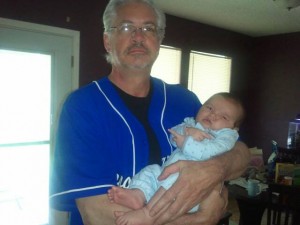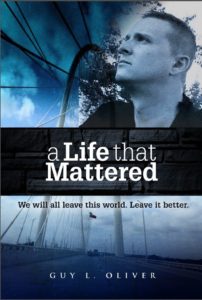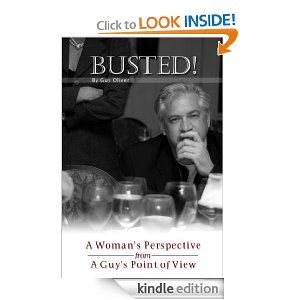“I believe that what we become depends on what our fathers teach us at odd moments, when they aren’t trying to teach us. We are formed by little scraps of wisdom.”
― Umberto Eco, Foucault’s Pendulum
 As a society, we don’t acknowledge fathers in the way that we acknowledge mothers. While we set aside a day we call Father’s Day, this was a historical afterthought. Father’s day was conceived, and later celebrated, a year after the inception of Mother’s Day, on the heels of a Mother’s Day sermon.
As a society, we don’t acknowledge fathers in the way that we acknowledge mothers. While we set aside a day we call Father’s Day, this was a historical afterthought. Father’s day was conceived, and later celebrated, a year after the inception of Mother’s Day, on the heels of a Mother’s Day sermon.
Predictably, it was a woman who proposed Father’s Day. The suggestion made by the fairer sex is predictable, because men do not seek adulation as fathers. We do not bother promoting praise for the same reason society does not. Neither men nor society see the role as an honor, relegating it instead to a duty — like going to work.
Now, if you ask ten strangers on the street, whether fathers are important, you would receive a nod “yes” from all ten. That said, affirming paternal importance, no way mirrors the adoration we offer mothers, especially on their special day.
This last Father’s Day, though, I considered deeply the role of fathers and fathering — but my ruminations require context, so allow me a diversion.
My oldest daughter, Rachel, brought my first grandson into the world about 15 months ago; my youngest daughter, Ashley, bore her first child about a year later. What struck me is how everyone wants to hold the baby — especially women. Holding, cuddling, caressing the infant, I believe, is one manifestation of the protective instinct we have for children more generally, but that instinct is not one that I share.
Please don’t misunderstand: I realize that being held is very important in infant development. But my inclination to hold babies is superseded by my desire to assist them in becoming grown-ups, which begins very early in their development.
First words, first steps, and first cognitive recognition of spatial and mechanical relationships, these are as important to the baby’s well-being as giving them the security of being held. So when it was finally my turn to hold my first grandson for a substantial period of time, I chose not to. I chose to spend my time with my first grandson in a very different way.
Rachel asked my wife, Heidi, to watch the baby so that she could be with Ashley while she was in labor, and Heidi spent most of her time holding him — that is until it was time for lunch. We made our way down to the cafeteria and purchased a sandwich for me and a salad for her. I ate, while Heidi continued holding the baby.
When I was done, I looked at her unopened salad container and asked “Aren’t you going to eat?” She looked at me and said “Someone has to hold the baby.”
“Just put him down.” I replied.
“No. He’ll wander off.”
“I’ll watch him. Here.”
Taking my grandson, I placed him on the ground and flanked him as he crawled energetically away from Heidi’s perch. As he began to make his way toward the kitchen Heidi called out to me “He can’t go in the kitchen. He’ll get hurt.” I paused and looked at her. “Really?” I asked trying to hide the sarcasm.
Turning I caught up to him in about three paces and just continued to stay close by. When he was about six feet from the kitchen threshold I stepped in front of him blocking his path. He changed direction and I moved and blocked his path again. Time after time he tried to make his way to the kitchen as I demonstrated the boundary without saying a word. I pointed to Heidi and said “Go see Oma.” and he eventually did.
We went through this entire process a second time and, after a few minutes, he realized I wasn’t going to let him into the kitchen. He then grabbed my jeans and pulled himself up, while looking up at me and smiling. Taking him by the hand I said “Let’s go see Oma.” Guess what? Supported by my hand he took about a dozen clumsy steps, collapsed on the ground and then finished the trip under his own power.
That’s what fathers do. They push you and set boundaries. This role is critical to a child’s development — especially to boys — but it is often impugned as uncaring or overlooked because it doesn’t appear that anything is really happening. In my opinion, that’s tragic, because it’s a valuable contribution to the parenting equation. That said, there is no substitute for balance.
I can honestly say that my own father was very good at that part of the job—albeit overzealous in his approach. This was a problem, because he presumed bad behavior, and continually sought it out. As my wife once suggested, if you go looking for trouble the Universe will surely send it.
So we spent the majority of my childhood in a near continual state of reprimand, which prevented a closeness with him as I grew older; a closeness I always craved. Very good at boundary setting. Very bad at enjoying time within the boundary.
Now, let’s play a game I like to call “What Will Happen Next?”
What happened next is that I became my father. I relied on boundary setting and discipline as a substitute for love and nurturing — and discipline is a poor surrogate for nurturing.
Citing some of my exhortations on facebook a few months ago, my son asked me “Where was that guy when I was growing up?” My answer went something like this:
“I’ve mentioned this before, but it bears repeating: my greatest regret in your childhood is that I wish I had spanked less and hugged more.
Where was that guy when you were growing up? He was buried under a mountain of bills he couldn’t pay, in a marriage to a woman who wasn’t capable of loving him, beset by an environment that was in continual disarray.
Does that excuse the yelling, the unkind words, and the behavior unbefitting a loving father? No. But I have always loved you and in this life we do what we can.
I’ve not only learned that it’s good to be kind to and gentle with those in our lives — but I also now have the luxury of being that way more often. I have no children to raise, I earn enough money to get by, and have a public forum of self expression where I can think before I speak because the words are on paper, and are thus retractable.
Words spoken can never be retrieved, but words written and never delivered remain unknown to the recipient. So know these words:
Your father loves you now and he always has.
Dad”
This past Father’s Day after a dozen years of estrangement, my son and I sat down together at a local restaurant and I began to acquaint myself with the man he is today. A man who has spent the last decade lost and trying to find his way. A man who now steps up to the plate and dons the mantle of manhood. A man I am learning to respect and admire. And I regret with my whole being the loss of those dozen or so years.
I’d like to leave you with a belated Father’s day exhortation from my facebook page:
My youngest posted a photo of me holding her son. This is my second grandchild, and as I survey the man with the scraggly beard and grey hair, staring stoically at the camera lens holding this new life, Julius, I thought about the circle of life.
We come into this world untainted and perfect. We don’t know anything about hatred. We are free from prejudice of any kind. We know only what we are taught. And if we are taught, love, and kindness, and compassion, then most of us treat the world that way and something beautiful happens for us and those around us. If, however, we are taught hatred, are offered a mean spirit, or are told we have no value, we often return that ugliness to the world.
On this Father’s Day if you’re a Father with little ones, I would just like to remind you that what you give to your children is shaping the world for their children. Make it something beautiful, and — because I know you — I know that you will. If you’re a Father and your children are grown, then because I know you, I also know that you did a great job, and I thank you for leaving the world a little better than you found it.
Guy-o



A beautiful, redemptive post that covers a lot of ground.
Father’s are important, and no child raised without a father takes that role for granted; however, I don’t know that society sees it simply as work. Historically, the role of the father differs, being either a passage into hunting society, or as the primary breadwinner. The connection between mother and child that developed with breast feeding, and the idea of children learning language with cooing and baby talk, that’s where much of the maternal valorization comes from, I think. Also, historically, women have given away inordinate amounts of their lives for the child’s development, often at the cost of education, economic development, and the like.
The development of that model, that women must sacrifice in the one on one relationship, keeps women back in the larger social picture. “Stand by your man,” being an extension of that socialization, it seems to me. If the male suffers relationally by having to earn money to do his duty (many of which, don’t), the women suffers by giving herself to a never ending demanding bag of emotions and needs wrapped in flesh. Too frequently, she does so without skills, and often in ways that serve no one, least of all herself.
The connection historically has been more immediate and physically demanding on the mother; also, there’s a high rate of women caring for children alone, which also deserves acknowledgement.
Those facts stated, I think the honor of fatherhood can come from equally important emotional relationships, if a man learns how to negotiate some difficult social waters, and if we learn to change our modeling. It’s not just boundary setting, it’s smart boundary setting given with love, which should not be the domain of either sex.
And working mothers can be very good at boundary setting, when forced into it. Often, its the love that lacks, given the challenges they face.
There’s no need for men to bear the total financial burden that keeps them isolated and lonely and as big meanies with boundary sticks; nor is their any need for a woman to isolate her development for the needs of the child.
I seem to remember a story, don’t know if I actually heard this, or, if I did indeed hear it, if it were true, but it’s a good story, I think. When Sean Lennon was born, Yoko told him, “It’s your turn now. I’ve had him nine months.”
Of course, we learned all about John baking bread with Sean, and all the great pictures. But what a lot of folks don’t know is that Yoko actually saved their financial asses. She proved to be a shrewd investor and business person, and while John was playing proud stay at home papa, Yoko took a heap of financial disaster and turned it into gold.
While I appreciate your idealized view of how we come into the world, I think that we’re also burdened with biology and genetics: kids can be pretty nasty creatures, all deviant and selfish. They are humans.
Which means boundary setting and loving guidance are all the more necessary.
Well written and thoughtful. I hope you and your son continue enjoying a growing relationship — which requires time, work, and writing, no doubt, in a busy life.
The above poignantly illustrates the need for our diving deeper into our personal and cultural mythologies, in order to rework the stories we live within.
Well done. (And please excuse the copyediting.)
Thank you Shari. That was a thoughtful reply that means a great deal to me. I hope you continue to follow my musings.
Dear Guy,
What a rare and privileged grace you were given in re-connecting with Tim this past year — and how fortunate you were to offer this beautiful gift to a young man who strove to be his best, as does his father.
My deepest condolences are with you and your family, knowing that Tim looks on in love and peace, fishing pole in hand, I suspect.
With love,
Shari
Thank you Shari. Your words mean a great deal to me during this time. I believe it is indeed the grace of God that enabled the turn of events before Tim’s untimely end here on Earth. I am sad. But I’m thankful for the way he chose to live his life in his last year, and I am trying with all that is within me to rest in that truth.